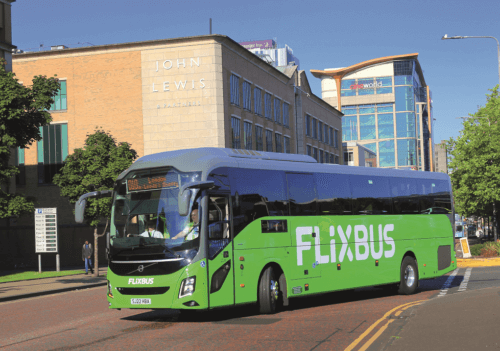
FlixBus is making waves in the UK express coach market. Richard Sharman takes an in-depth look at its operations in the domestic market and the rest of the world
FlixBus’ mission statement is to ‘paint the world green,’ a strapline that has a dual meaning. It doesn’t just mean painting coaches green, but also refers to the tech company’s efforts to invest in the latest green technology.
The FlixBus story in the UK is longer than you may think. Since 2016, green coaches have been running from France, Germany and the Benelux countries to the United Kingdom. In the same year FlixBus purchased Stagecoach-owned megabus’ continental business, including its cross-border routes to and from the UK, strengthening its position on routes between the UK and mainland Europe.
40th country
Andreas Schörling is the Managing Director for FlixBus UK, and although born in Sweden he moved to London ten years ago. Talking about how FlixBus started in the UK domestic market, he explained: ”I joined FlixBus in October 2019, with the mission statement that FlixBus would launch UK operations in April 2020. I started to recruit a team that would be based in London, as the main hub for our coach services would be Victoria Coach Station, and it was important for us to be located as close to our customers and operations as possible.
“Starting off in the UK, we used our business and operational model, which has worked in 39 other countries to date. The UK was proudly the 40th country and we had no plans to change our partnership model. Our model is not to buy or operate our own coaches; this is why we partner with operators. The strength of FlixBus is the digital offering through the software developers and digital tools we have.
“Whilst we do have our operating model, with exposure to 40 different countries, FlixBus does realise that every market is specific in its own way. The UK uses PSVAR-compliant coaches on its express coach services, but it is not unique in that. We also operate coaches to this specification in many other countries.”
[…]By subscribing you will benefit from:
- Operator & Supplier Profiles
- Face-to-Face Interviews
- Lastest News
- Test Drives and Reviews
- Legal Updates
- Route Focus
- Industry Insider Opinions
- Passenger Perspective
- Vehicle Launches
- and much more!


